“Inclusion doesn’t just mean who’s in the room”: An interview with Olivia Munk, co-producer of Virtual Collaborators Festival
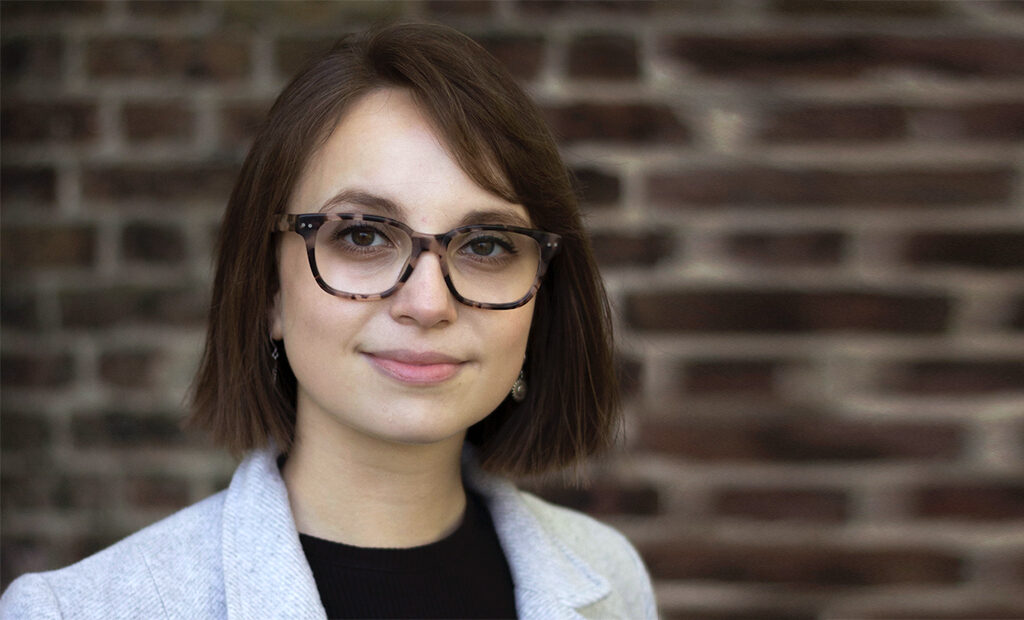
The Virtual Collaborators Festival is a hybrid digital and live festival that runs from 17th August until 13th September. Culminating in two days of live performances in the grounds of St John’s Church, Leytonstone, the festival will showcase the work of new and underrepresented talents in the theatre industry. It comes on the heels of Danusia Samal’s Virtual Collaborators Network, set up in March to connect writers, directors and actors in order to stimulate creativity during the coronavirus pandemic.
The Upcoming’s Marissa Khaos caught up with the festival’s co-producer Olivia Munk to discuss inclusivity, the aims of the festival, the possible future of British theatre, and Part of the Main, the theatre company she set up in 2017.
To begin with, can you tell us a little about the circumstances around which Part of the Main was conceived?
I’m originally from the US, so when I graduated from my Masters in the UK, I knew I wanted to find a way to stay and get involved in London’s theatre industry. My uni offered endorsement for a Graduate Entrepreneur Visa, which at the time was pretty much the only avenue for a work visa to remain in the UK (particularly for the arts!). I had produced a short play at The Space while still completing my Masters, so I decided to try and start a full-fledged production company. After first being rejected by the endorsement panel, I was successful the second time in autumn 2017 and granted leave to start my company.
Though I had originally set my sights on working just as a director, Part of the Main taught me how to be a little bit of everything – producer, director, production manager, accounting, company management and more. Though I wouldn’t have called myself an entrepreneur three years ago when I founded Part of the Main, I’m grateful for having the opportunity to independently create work in the UK.
How does Part of the Main seek to tackle theatre’s limited opportunities for artists of colour and the ways in which the efforts of freelancers are overlooked?
I have sought to address both of these imbalances, ones that often go hand in hand, via my “Part of the Grid” workshop series. These workshops first began in 2018, when POTM was given a residency at the Drayton Arms Theatre in Kensington. I used the space to establish the first workshop – a two-day joint lighting and sound design workshop. We sold out and had great feedback, and grew from there. Over the following year I added Stage Management, Producing, and Costume and Set Design, amongst others. When we went into lockdown in March 2020, I brought the workshop online. With the reduction of costs that the digital “Zoom room” brings, I was able to bring down the price of the workshops as well.
Though I was of course delighted to see a high volume of interest in the digital workshops, it also illustrated to me that there is a real information gap amongst freelance artists. We are expected to wear so many hats – rarely will someone just work as a producer, or just as a director, for example, me included! Some of the most popular workshops were technical ones, such as lighting or sound design, as well as professional development sessions, such as on assistant directing or mental health in the rehearsal room.
In a way, many of these skills might be spread amongst a variety of professionals in an institution, or would be provided as professional development within a “traditional”, PAYE job. But as freelancers we have to make our own way in the industry, and it’s frankly heroic to see how keen our workforce is to learn and grow despite an existential threat to the economic model underpinning theatres.
Through the success of the workshops under lockdown I was able to improve my outreach to Black artists and other artists from groups marginalised in our industry. This summer free workshop spaces were available to Black artists, a scheme I will keep and extend as the programme grows. I did this not only to remove financial barriers to attend the workshops, but also to show that Black voices and expertise are wanted and needed in our community. The pandemic has stripped back the pretence that our industry is inclusive. There’s a lot of work to be done, and I hope that by offering methods of connection and development to the artists whose voices we need the most, they will have the information and network to succeed and grow their careers.
You spoke of using your white privilege to challenge problems of under-representation in the arts. What advice would you give to others who can begin to address their own privilege and use it to create platforms for those systematically denied access?
Great question. I think that as a white director and producer it is my obligation to create opportunities that seek and hire Black, Asian, migrant and other artists from marginalised backgrounds and genders, such as trans and non-binary creatives. For other theatre-makers who are in a similar position to hire actors, designers, and other creatives, it is important to do the legwork to find and hire freelancers who don’t come from the same background, particularly if you are white and cisgendered. This probably means not hiring the same people you went to university with, or people who have prestigious theatres on their CVs. It’s about entrusting people with what might be their first jobs, and taking the time to create a supportive environment where you make every effort to ensure they succeed. Inclusion doesn’t just mean who’s in the room; it’s about who’s making decisions, being paid appropriately, and being offered the best environment for them to personally make their best possible work.
How did you come to work with Virtual Collaborators Network and Danusia Samal, whom you met as a director for the first round of Virtual Collaborators?
I first met Danusia Samal when I directed a new monologue as part of the first Virtual Collaborators round, which Danusia ran alone. After the close of that first round, Danusia sent out an email to see if any of the participants were interested in becoming involved in the second round. I emailed back, and Danusia and I had our first Zoom “hangout” of many. During the nebulous phase of re-opening around May-June, we reached out to all of our industry contacts to see who could offer us support for a new round that combined digital and live performance. Over a number of weeks the festival took shape, we sourced funding and paired the teams. Though I wouldn’t have wished the pandemic on my worst enemy, I am so grateful to have met and worked with Danusia and had the opportunity to support so many artists and new pieces of work. To me, the Virtual Collaborators Festival definitely feels like the epitome of making lemonade out of the bushels of lemons 2020 has handed us.
Following the Virtual Collaborators Festival, can you speak about the successes you would like to carry to future festivals, and what you would do differently?
I think more artists should be given the remit to create new work without the pressure of press and ticket sales. The pandemic has shown us the limits of our creativity in delivering work has merely been precedent and tradition. Artists can and will make their best work if they are not tied down by reviews, box office reports and physical locations. As a theatre-maker I am most excited by the possibilities of finding new financial models to underpin hybrid digital/live work, and by engaging with artists and audiences outside of London.
To be honest, I don’t know if there is anything I would do differently. I think I speak for the production team when I say producing a festival with 120 artists around the UK during a pandemic is not the norm, but it has been an incredible insight into the artistic process, audience mindset, and begging, borrowing and stealing every resource you can. I have learned so much about working with local councils, applying for subsidy, working with artists from different disciplines and backgrounds, and joining with a variety of partners to deliver work that has happened against the odds.
Though I am usually quite good at planning ahead, there has been an air of throwing caution to the wind because, at any moment, all of society might be shut down to prevent the spread of a deadly virus. To this end, I have been touched by the generosity of individuals and organisations who have donated their time and resources to ensure that new work can carry on despite COVID. It has been a trial by fire for producing in a way I don’t think I can ever replicate (nor, for the sake of humanity, do I want to). It’s been an experience I know will pave the way for all of my future work, and I am so grateful for the opportunity.
What advice do you have for those who wish to follow on from your work in forming collaborative projects of a similar nature?
I think one of the key aspects of engaging and matching so many artists was an easy application process. There has been a renewed conversation about the effort asked of freelance artists before they are even given an interview. I myself have spent hours crafting a lengthy required pitch, only to receive a swift rejection. Particularly amid redundancies and a recession, processes like these can be a major deterrent to the artists whose voices are needed the most. As such, Danusia and I only asked participants to fill out a short Google form about their interest in joining the collaboration. We received nearly 200 expressions of interest and spent hours painstakingly mixing and matching artists whom we believed would work well together. Artists who were successfully matched were then supported to create new work; artists who were not successfully matched did not lose hours for an opportunity that didn’t work out. Even removing a small barrier to access by respecting people’s time can be a clear way to make your project more inclusive and understanding of the artists you seek to engage.
It has been very inspiring to learn of your productivity during the lockdown period. Can you speak about what it has been like to plan a live event with the changes brought on by the pandemic?
To be entirely honest, I think COVID has made planning the event easier, at least from an emotional standpoint! Logistics, of course, have been more complex than ever – every single touch point must be constantly cleaned to reduce virus transmission, government guidelines seemingly change daily, and the sheer fact of putting theatre outside makes the entire process much riskier in a rainy climate. But the unpredictability of it all has made people so much more understanding and patient. Theatres have been generous with their empty stages; furloughed freelancers have donated their expertise and time to run masterclasses.
As a producer early in my career, was undertaking my largest project to date during a public health crisis the best decision? Before actually doing the project, I might have said no, but being almost at the end of the entire endeavour, I think it was. The extra support from Waltham Forest Council, Arts Council, and all from of our management partners, from Bold & Saucy to Soho to the Albany, has been incredible, and I’m not sure everyone would have had the same bandwidth to patiently listen to my questions and field my endless emails if it was “business as usual”. If I’ve learned anything from this experience, it’s to take more risks with my work – hey, at least it will (knock on wood) never again be during a pandemic!
What can audiences expect from the live festival?
Our live festival takes place on 12th and 13th September on the beautiful grassy grounds of St John’s Church, Leytonstone. The church is conveniently located near Leytonstone tube station, and all of our live performances will be performed outside. The grounds are dotted with old tombstones, adding character to the event. Audiences are invited to bring their own food, drinks and picnic blankets to enjoy the shows with their “bubbles”.
In addition to the live performances, which feature both emerging artists right out of drama school and established artists such as Clare Perkins (Emilia) and Naomi Ackie (recent BAFTA winner for The End of the F**king World), there will be live music from local talent. Audience members will be able to play a new interactive game about how we take care of our green spaces, as well as enter the church hall to view a selection of short films from the event. It is designed to be the perfect September evening after six long months of very few live arts performances.
What are your visions and hopes for the future of British theatre?
I hope that British theatre embraces the new: new ways of funding and distributing theatre, new ways of engaging audiences, new audiences, period, new voices, and new work. Though I understand the desire to populate upcoming seasons with “safe” plays and actors, I urge producers and programmers to consider what we have learned from the pandemic – that there are more audiences out there than we as an industry have traditionally reached, and that it is likely the work we were programming was not appealing to these audiences. I hope to see theatres filled with work by Black and Asian artists, indigenous voices and non-binary and trans actors on stages. As someone who does not have British citizenship, I want to see work by EU and migrant artists that echoes the incongruity of feeling affinity to a country that doesn’t always make staying here an easy option. The new normal shouldn’t be normal at all – it should be a reckoning that what we have always known is not what should always be.
Can you give some tips to those interested in collaborating with you as an artist?
I love new work, particularly new work that centres women, trans, non-binary and gender non-conforming artists. Lately I have been particularly interested in exploring historical women – I wrote a short play for Virtual Collaborators live festival about Julian of Norwich, a medieval anchoress who responded to surviving the plague and receiving visions from God by retreating to a cell in the bowels of a church, where she was voluntarily entombed until her death. I’ve also been directing and developing a new play entitled Bloody Mary: LIVE! that sees Mary Tudor perform stand-up as a teenager, and Populist, a play for nightclubs featuring drag kings and a forgotten woman from the Roman Republic. I also love work that plays with music – Populist takes place in a 90s club night, for example. But besides subject matter, I really love working with emerging artists who have new ways of reflecting contemporary issues and politics in their practice.
Marissa Khaos
Virtual Collaborators Live Festival is at St John’s Church, Leytonstone, from 12th – 13th September 2020. For further information or to book visit the festival’s website here.

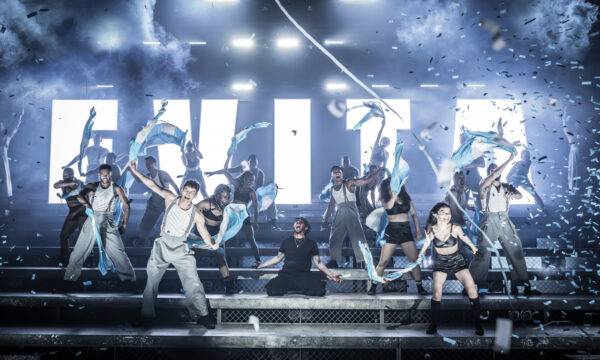
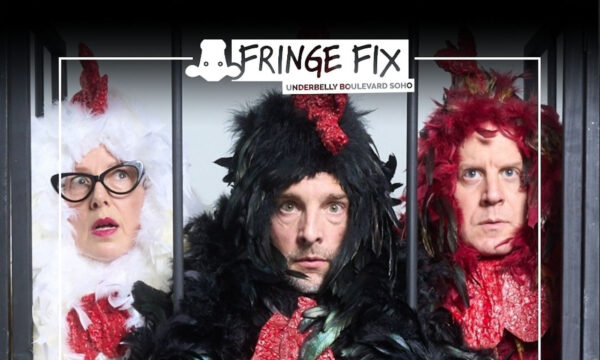
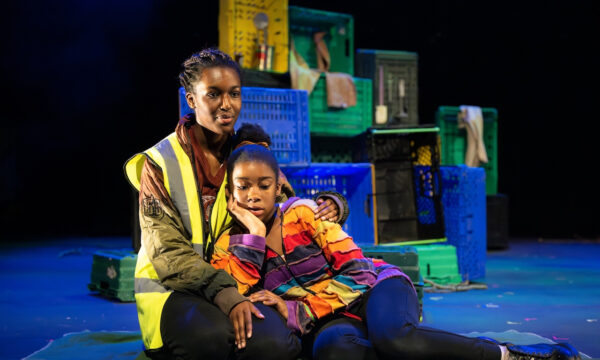
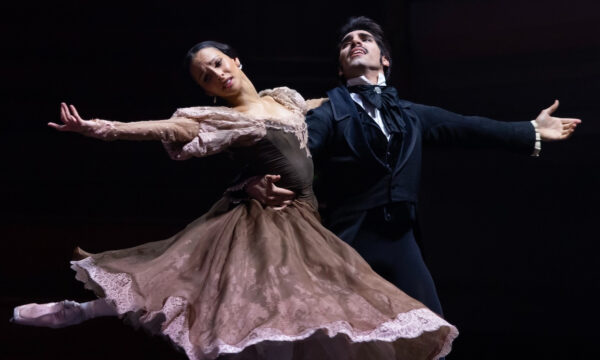
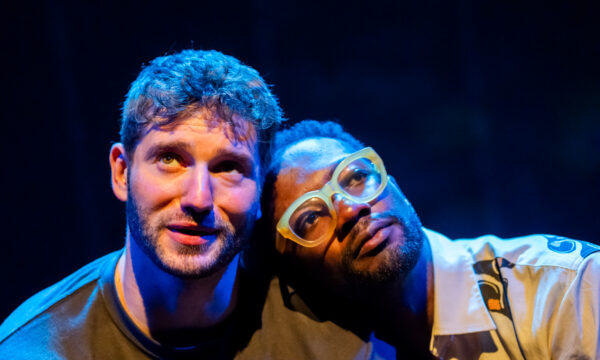
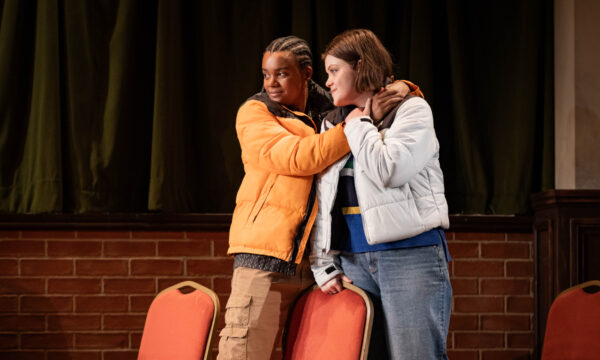
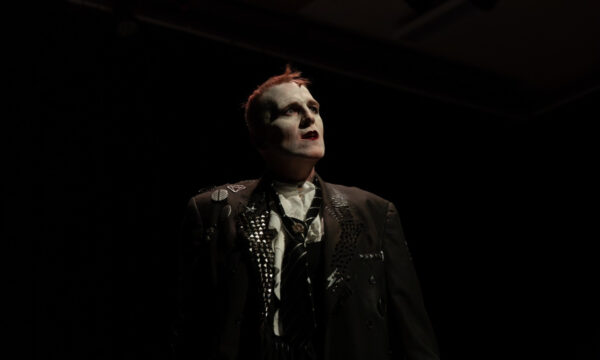
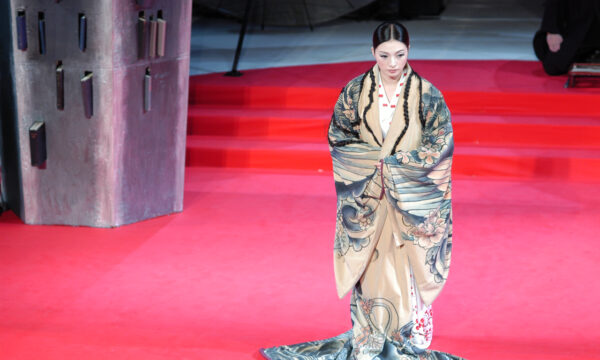
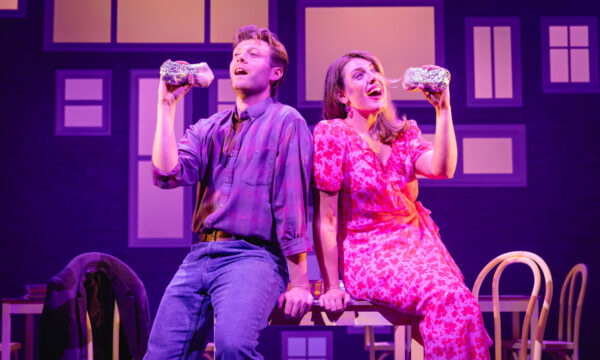
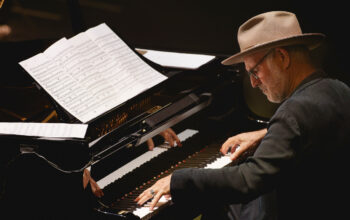
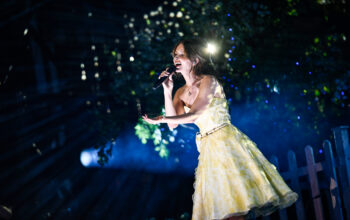
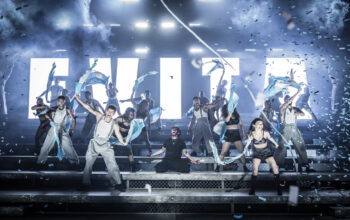
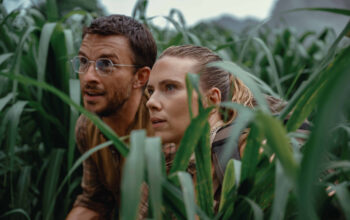
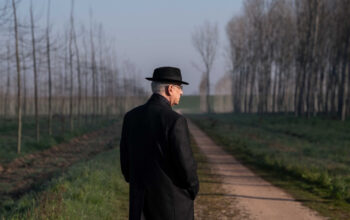
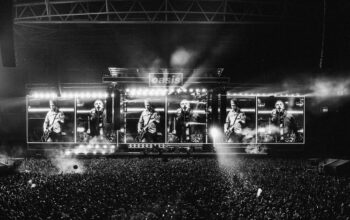
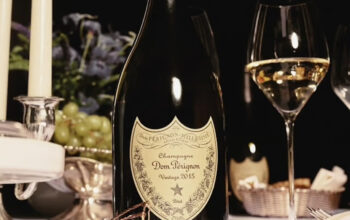
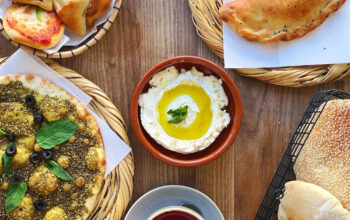


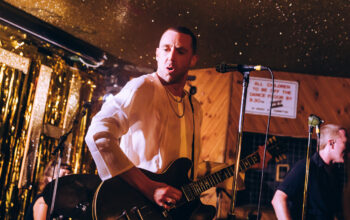

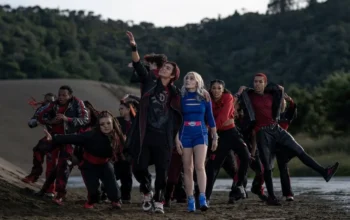
Facebook
Twitter
Instagram
YouTube
RSS